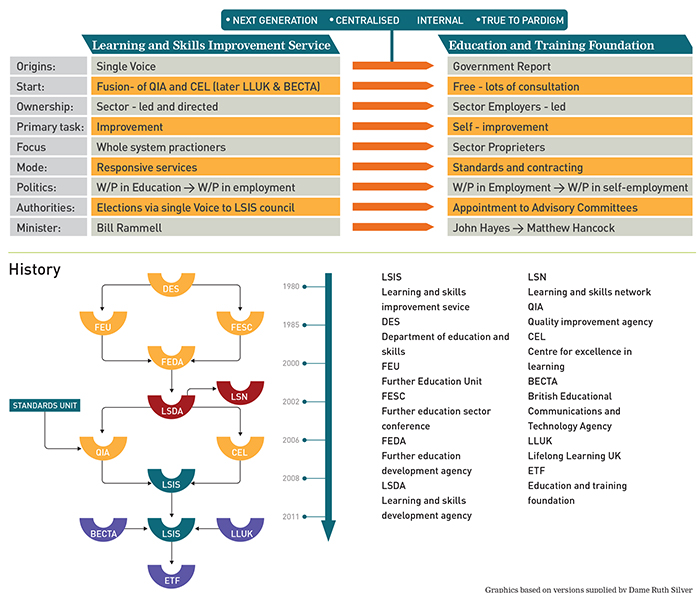Different delivery environments for vocational learning are a hallmark of many independent training providers — and that’s something that needs proper recognition from inspectors, says Stewart Segal.
When the latest common inspection framework (CIF) was introduced, it was clear that inspections in the sector would be very challenging.
It was not just the reclassification of satisfactory to requires improvement, but the emphasis on teaching and learning was always going to be a challenge in a sector where employer engagement and on-the-job assessment play such important roles.
Despite attempts to ensure all learning is given equal credit, many providers feel the inspection process reflects traditional classroom approaches.
Work-based learning by definition takes place in the many different environments of the workplace, often involving very small groups or even individual trainees.
The training provider may also be operating across several sites, which requires management oversight of a consistent set of standards to maintain the Ofsted standards.
It is difficult to argue against teaching and learning being more influential in the overall grading, but in the case of work-based learning and the provider’s role, it is often assessment of the learner’s progress and the wider support in the workplace which is so important and this may not be given the same credit as good teaching in traditional settings.
It is also true that success rates play a significant part in determining the grade of the provider.
Delivering to some hard-to-help groups in difficult working environments can mean it is very challenging to deliver high success rates.
We have to make sure that success rates are seen in the context of the different delivery environments.
Classroom-based learning has traditionally had higher success rates.
This might partly explain that under the new CIF, work-based learning providers have seen pressure on their Ofsted grades.
Not enough are outstanding and too many require improvement so the grade profile overall is likely to be worse than last year.
The focus for the Association of Employment and Learning Providers (AELP) must be on how we work with providers to support them to be good or outstanding.
The willingness to improve is not lacking, judging from the provider turnout that we see at our events on inspection, so AELP will continue to organise workshops that promote the sharing of best practice.
We have discussed with Ofsted the need to build capacity in the sector to ensure we have the skills and knowledge to deliver the standards required.
The discussions have covered a number of options around provider programmes and we hope to take those plans forward shortly.
The new Education and Training Foundation will also play a useful role in providing support to providers.
The new CIF is only a year old and providers need time to work with Ofsted to understand the standards and deliver the service to customers that meets the standards.
Providers score highly in terms of flexibility and meeting employers’ needs and we need to ensure these factors are seen as important elements of meeting the CIF standards.
Providers that have developed good working relationships with employers are now being excluded from delivering the traineeship programme because of their Ofsted grades.
Although we understand the importance of ensuring high quality delivery, we need to ensure Ofsted grades are not used to exclude effective provision especially where employers or learners are excluded as a result.
In the case of traineeships, the critical work experience element requires a large number of committed employers on board to ensure that the programme is a success.
There are many grade three work-based learning providers with access to these employers, but the grading threshold means employers will almost certainly not be participants in the programme.
We need a balanced approach to the quality threshold that puts the learner at the centre of the decision.
A fair, transparent and appropriate inspection regime should be the objective for everyone that believes in consistent improvement. We need to ensure that the inspection framework recognises excellent delivery and creates the platform for provider improvement.
Stewart Segal, chief executive, Association of Employment and Learning Providers



